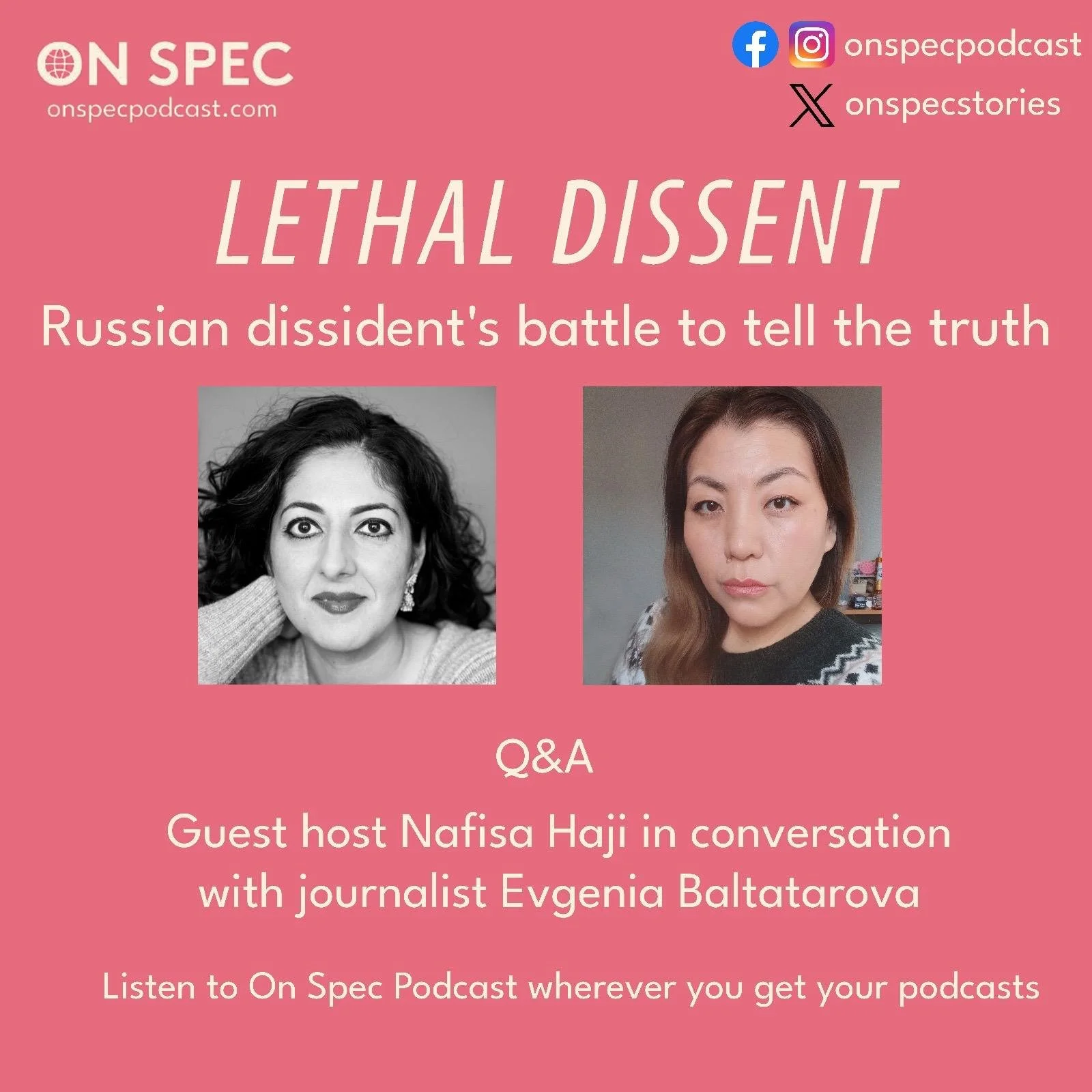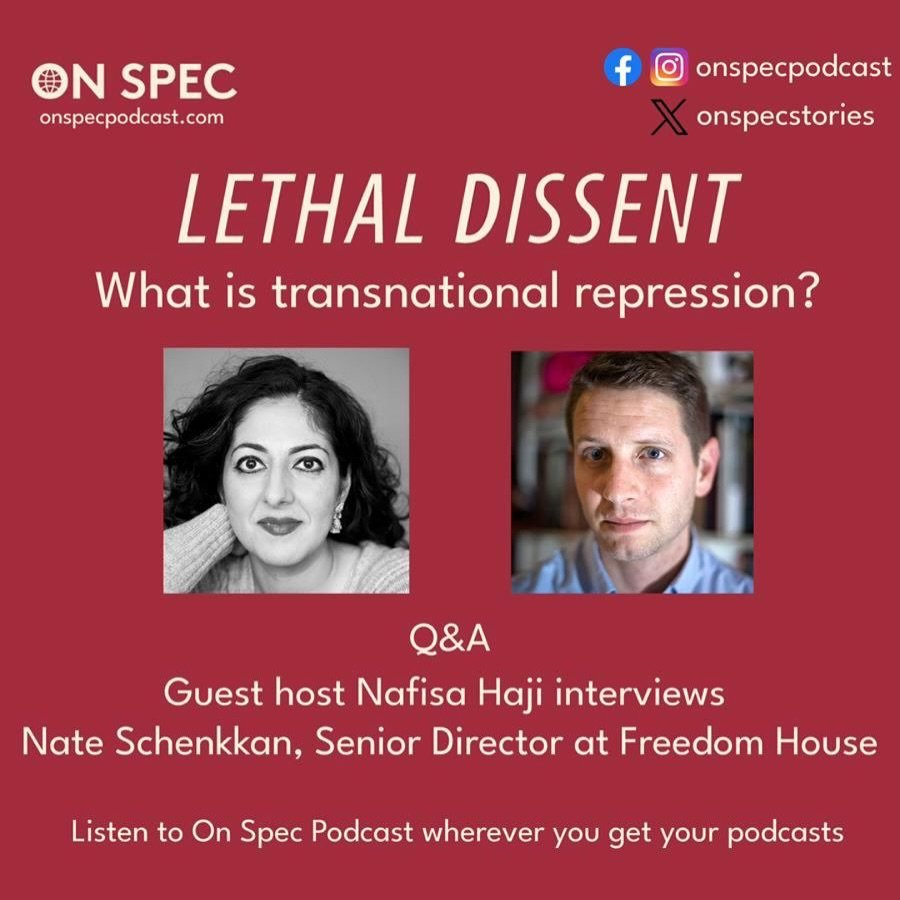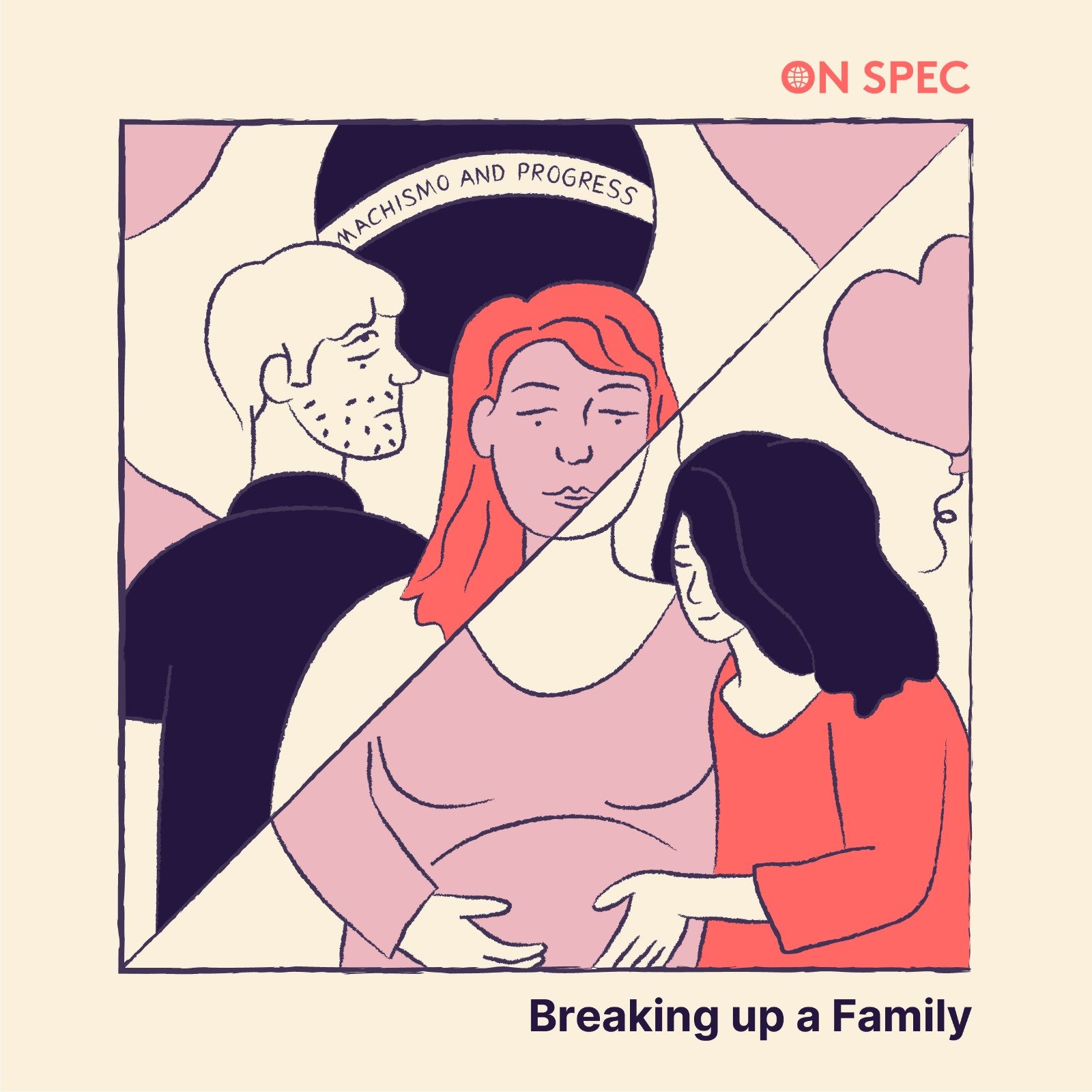Freedom of Expression & Dissent
Season 5: Lethal Dissent
Fariba Nawa and Özge Sebzeci wrap up the season with some great news about some of the characters we met in Lethal Dissent.
Guest Nafisa Haji interviews Evgenia Baltatarova, a journalist and activist from Siberia, who fled Russia for Kazakhstan soon after the start of the war in Ukraine, when authorities ensnared her in a crackdown on critics of the war. Baltatarova had to move countries once again when Russia sought to have her extradited from Kazakhstan, and talks about the toll exile takes on one’s life.
Guest Nafisa Haji interviews Emile Dirks, Research Associate and China expert at Citizen Lab, about Beijing’s tactics for silencing critics abroad, and the controversy over TikTok.
Guest host Nafisa Haji interviews independent journalist and analyst Borzou Daragahi about what it was like covering the killing of Jamal Khashoggi, and what the case says about the growing problem of impunity and transnational repression.
Iranian protesters thought they were about to topple the regime during the Woman, Life, Freedom movement, but once again the regime crushed the demonstrations despite some wins for women. Journalist Samira Mohyeddin talks about the weaknesses and strengths of the movement and why it’s not over. She also gets personal about navigating identity and journalism.
Host Nafisa Haji speaks with Nate Schenkkan, Senior Director of Research at Freedom House, about Transnational Repression. The term is familiar in policy circles and academics but what’s the meaning behind these two words? Who’s accountable for protecting dissidents targeted beyond their own borders by their own countries, and how is policy shaped in a global setting when sometimes countries are both protector and perpetrator?
Guest host Nafisa Haji interviews reporter Fariba Nawa about the adventures of reporting Lethal Dissent for two years, getting threats and the feedback the show received from listeners.
In the final episode, Mohammad Shabani’s suicide note is analyzed by a handwriting expert and Fariba Nawa gets the results. She follows the ripple effects of the new information, and Mohammad’s best friend tries to make sense of what it means.
Fariba Nawa is threatened. She steers her reporting to focus on impunity. The investigation into Iran’s hunt for dissidents goes to the United Nations, inside a Turkish parliamentary hearing, and to the US State Department to find out if anyone will intervene.
The Sağlam family's kidnapping operation is caught in a police dragnet. The ensuing police investigation reveals an entire network of conspirators behind the Sağlams. When one conspirator is arrested and interrogated, he confesses. Fariba Nawa uses the confession to tell the story of Iran's behind-the-scenes involvement.
Rezaie gets into the car with the Sağlams. But he already knew he was being tricked. His suspicions had begun long before he climbed into the car, back at the kebab restaurant when the Sağlams introduced him to an American woman. Fariba Nawa tries to untangle the story of the American woman, and finds out how Rezaie foiled the kidnapping plot against him.
There’s a convincing explanation for Mohammad Shabani’s death, but the evidence is incomplete. While Fariba Nawa waits for a crucial piece of evidence to be analyzed, she tries to find out how far Iran will go to silence dissidents. A Turkish court case exposes an Iranian kidnapping ring and offers an answer. Fariba finds a source to guide her through some of the inner workings of the secret operation.
In the city where the dissident Mohammad Shabani died, Fariba Nawa finds evidence that points towards his cause of death.
The death of poet Mohammad Shabani, an Iranian dissident living in Turkey, catches his friends, family, and supporters by surprise. Fariba Nawa finds one of Mohammad Shabani’s confidantes and learns new details about his life in exile before he died.
When two close friends who work for the Iranian government follow their conscience, it puts them at odds with the regime. Now one of them is dead. To figure out what might have happened, reporter Fariba Nawa goes back to the beginning.
Reporter Fariba Nawa introduces her investigation into Iranian plots against exiles in Turkey. She tells the story of Iran’s history of violence against its citizens at home, and how that violence has grown to cross international borders today. The fate of a dissident in France becomes a blueprint for the questions she seeks to answer.
Season 3: Disinformation
In Africa, herbal treatments are used to heal viruses in the absence of modern medicine, but disinformation about these treatments and how they can cure COVID-19 is having a deadly impact. Government officials and local healers out to make money sell these treatments with fake news. Congolese journalist Patrice Chitera, who has used these treatments for his ailments in the past, adds his own story as well as those impacted by these herbal meds. Patrice questions who to hold accountable for the loss of lives in a country where there’s little trust of those in power.
Hong Kong protesters were on the streets for more than a year to fight for their freedom of expression after China announced laws to further curb their rights in 2019. Police violently attacked protestors, threw opposition politicians in jail and the country has been polarized as disinformation spreads. Journalist Lisa Jane Harding, based in Hong Kong for 19 years, reports through the eyes of a politician and a chef supporting opposing sides on how the protests split Hong Kong, and if the city can regain lost freedoms.
Some of the world’s most active climate deniers reside in the United States. Arkansas suffers from flooding and is one of the conservative red states where many farmers, who have the most to benefit from green policies, are actually voting against their best interests because of disinformation. Arkansas native and journalist Alice Driver introduces an organic farmer, who’s a climate activist, to a state senator, a climate change skeptic who also happens to be her neighbor, to see if they can find common ground.
Suno India speaks with journalists Prachi Pinglay and Kunal Shankar, who produced On Spec’s Season 3, Episode 4 – Love in Times of Hate. They discuss what the impact of fake news has been on India, and what it was like reporting and putting together the episode for On Spec.
The Modi government has an agenda to make India a Hindu nation, and they have tapped into old prejudices and disinformation to brainwash influential and ordinary people into hating minorities, particularly Muslims. Indian journalist Prachi Pinglay Plumber is a Hindu married to a Muslim, and she touches on her own experience of interfaith marriage, as she tells the tale of India’s demise from a secular democracy to a country that has used fake news to fuel riots. She unravels the Delhi riots in 2020 through the lens of a Muslim family living in a Hindu neighborhood, and a right wing Hindu activist. And she asks, how is love possible in the midst of broiling animosity?
Since the elections in Brazil that brought Jair Bolsonaro to power, Brazilian journalists Giovana Fleck and Carol Grune have been hearing politicians insult women, threaten them with rape, and try to take away their rights as women. For Carol, the polarized politics of Brazil led to a breakup with her father. Giovana helps Carol tell her story as the father and daughter quarantine together in Porto Alegre. Carol and her parents are on different sides of the feminist debate in Brazil, and they hash out their their political differences, realizing the divisions are really about their own identities.
Putin’s Russia is a homophobic country. The state media spouts anti-gay rhetoric and creates fake news, Parliament passes laws that curtail LGBTQ activism, and hate crimes are on the rise. But in bigger cities, there are also thriving gay scenes, and a new generation of Russian activists is seeking to change public opinion. British journalist Theo Merz, who’s gay, takes us to Moscow where he lives across these two Russias. He explores this rainbow divide and brings two people with radically different viewpoints face to face for a discussion about sexual identity.
Season 1: On Spec
What's behind the crackdown on journalism in Turkey, and how are local journalists continuing to report? Özge Sebzeci, a Turkish photojournalist, takes us inside Turkey in an era when the country leads the world in jailing journalists.
























